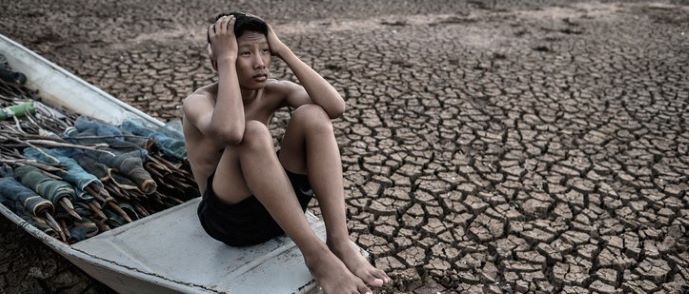Libraries As Catalysts For Sustainability and Climate Change Education
Ideas from librarians about supporting campus-wide engagement on a key global issue

In an era where climate change and sustainability are at the forefront of global concerns, academic libraries are uniquely positioned to lead and support transformative learning. As stewards of knowledge and community engagement, libraries can play a pivotal role in advancing sustainability across campuses and curricula.
This was the central theme of a recent webinar hosted by ProQuest, part of Clarivate. “Sustainability and Climate Change Across the Curriculum – Library Edition”.
Reimagining the Library’s Role in Sustainability
Dr. Krista Hiser, Sustainability Curriculum Coordinator for the University of Hawaii Office of Sustainability, delivered a compelling presentation that emphasized the importance of integrating sustainability into academic programs. She introduced the concept of “living learning laboratories”— campus-based projects where students engage directly with sustainability challenges. These immersive experiences not only enrich student learning but also contribute to institutional sustainability goals.
Dr. Hiser feels that libraries are natural allies in this mission. Through their foundational practices of sharing, borrowing, and returning for reuse, libraries already embody sustainable principles. However, their potential goes far beyond that. By curating sustainability-focused collections, supporting inter- and trans-disciplinary research and facilitating campus-wide initiatives, they can become “living learning libraries.”
Honoring Indigenous Knowledge and Place-Based Learning
A particularly powerful moment in the webinar was Dr. Hiser’s land acknowledgment, which honored the Indigenous knowledge systems that have long informed sustainable living. She encouraged librarians to reflect on their own connections to the land and to consider how “place-based education” can deepen students’ understanding of sustainability.
Place-based education is a teaching approach that grounds learning in the local environment and community. It emphasizes real-world engagement with local issues —such as water conservation, food systems or energy use — while drawing on the cultural, ecological and historical context of a specific place. This method fosters a sense of stewardship and empowers students to take meaningful action in their own communities.
Libraries can play a vital role in supporting place-based education by:
-
- Curating local archives, oral histories, and Indigenous knowledge resources
- Hosting community events and workshops on regional environmental issues
- Partnering with faculty to develop research guides and learning modules focused on local sustainability topics
- Providing access to tools like GIS (Geographic Information System) software, local data sets, and mapping resources
By anchoring sustainability education in the places students live and learn, libraries help make abstract global challenges tangible and actionable.
A Framework For Sustainability Professionals
Dr. Hiser also provided insight on the Key Competencies in Sustainability Framework using an interactive tool she developed in collaboration with researchers Katja Brundiers and Jordan King at the Global Council in Science & the Environment. Dr. Hiser explains that the framework is not a checklist. Rather, it acts as an interrelated skill set for use by sustainability professionals to address present and future challenges.
An interesting new plank of the framework, the Intrapersonal Competency, reflects the personal toll of working on challenging sustainability issues by focusing on self-care and mental health.
AI and Innovation in Sustainability Education
In a nod to emerging technologies, Dr. Hiser shared her experience using ChatGPT to brainstorm ideas for integrating sustainability into library services. While acknowledging the environmental footprint of AI, such as additional energy consumption and carbon emissions, she emphasized the importance of staying informed and leveraging technology to drive innovation in sustainability education. This opens up exciting possibilities for libraries to experiment with AI tools in developing programs, enhancing user experiences, and supporting faculty and student research.
Explore the Webinar On-Demand
The “Sustainability and Climate Change Across the Curriculum – Library Edition” webinar offers practical strategies, inspiring stories and a vision for how libraries can lead the way in building a more sustainable future. Find it here.
Support Your Students to Address the Big Challenges of Our Time
ProQuest One Sustainability is the latest addition to the award-winning ProQuest One series of resources. It is an unparalleled resource designed specifically for academic institutions committed to advancing sustainability education. Learn more and request a free trial to see how librarians can help to support sustainability studies.
Recent Blogs
The ProQuest DEI ebook subscription has been honored for its collection of titles that bridge perspectives
ProQuest, from Clarivate, establishes a content curation advisory group and moves to once-a-year title removals to better serve our librarian communities
New Ebook Central Reader App: Secure, accessible, and flexible. Enhance your academic reading experience with the best academic ebook reader today


